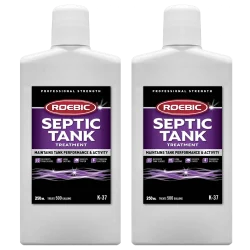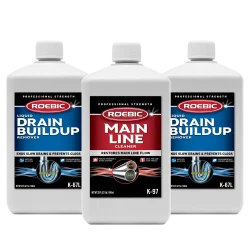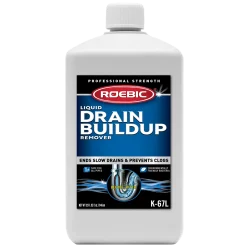Home » Knowledge base » Why Does My Septic Tank Smell?
Why Does My Septic Tank Smell
Septic tanks are a vital part of any household’s wastewater management system, designed to process organic waste without emitting unpleasant odors. However, if your septic tank starts to smell, it’s not just an inconvenience—it’s a sign of a problem that needs to be addressed. Whether it’s the rotten egg odor of hydrogen sulfide, persistent smells after rain, or unpleasant scents even after pumping, understanding the root cause is essential for maintaining a healthy home environment.
In this blog, we’ll explore why septic tanks smell, common triggers, and how the Anti Sewage Smell in House – Kit 2 can effectively eliminate these odors.
Common Causes of Septic Tank Smells
Why Does My Septic Tank Smell Like Rotten Eggs?
The most common septic tank odor is a sulfuric smell resembling rotten eggs. This odor is caused by hydrogen sulfide (H₂S), a byproduct of anaerobic bacteria breaking down organic matter in low-oxygen conditions. These bacteria thrive in improperly ventilated or poorly maintained septic systems, leading to a buildup of sludge and foul-smelling gases.
Why Does My Septic Tank Smell When It Rains?
Rain can significantly impact your septic system by altering air pressure within the sewer lines. This change can push sewer gases, including H₂S and methane, back into your home. Additionally, heavy rainfall may overwhelm the system, causing odors to escape through drains or vents.
Why Does My Septic Tank Smell After Being Pumped?
While pumping removes solid waste, it can also disturb the bacterial balance inside the tank. If beneficial bacteria are not replenished, anaerobic bacteria may dominate, leading to recurring odors. Post-pumping maintenance is critical to restore balance and prevent smells.
Signs Your Septic Tank Needs Attention
Odors are often the first indication of a septic system issue, but other warning signs include:
- Persistent smells after rainfall.
- Slow-draining sinks or toilets.
- Greener grass over the drainfield, signaling a potential leak.
- Backed-up sewage in drains, accompanied by foul odors.
If you notice any of these signs, it’s essential to act promptly to prevent more significant issues.
Why Professional Solutions Are Essential
Addressing septic tank odors requires more than temporary fixes or DIY methods. Unpleasant smells are often caused by complex issues, such as bacterial imbalances, blocked vents, or anaerobic conditions, which require targeted and professional solutions. This is where the Anti Sewage Smell in House – Kit 2 comes in.
The Solution: Anti Sewage Smell in House – Kit 2
The Anti Sewage Smell in House – Kit 2 from SEPTICTANK SHOP is specifically designed to neutralize septic tank odors by addressing their root causes. This comprehensive kit uses a two-stage approach to eliminate odors and maintain a healthy septic system.
What’s Included in the Kit?
- Roebic K67: Breaks down fats, soap residues, hair, and other organic matter in household drains, preventing clogs and odors.
- Roebic K97: Targets the main line to the septic tank, breaking down paper, grease, and sludge to improve wastewater flow and reduce smells.
- Roebic K37: Contains specialized bacteria that decompose sludge, paper, fats, and other organic waste within the tank, reducing odors and slowing the tank’s filling rate.
Key Benefits
- 100% biological and environmentally friendly.
- Easy to use and effective for both immediate odor control and long-term maintenance.
- Prevents recurring smells by restoring bacterial balance and keeping pipes clean.
- Suitable for households with septic tanks or cesspools.
By incorporating this kit into your septic maintenance routine, you can enjoy a fresh and odor-free home environment.
Additional Solutions for Other Systems
If your household is connected to municipal sewers or uses a domestic sewage treatment plant:
- Kit 1: Designed for homes with municipal sewer connections.
- Kit 3: Ideal for aerated domestic sewage treatment plants.
Each kit is specially formulated to address the unique needs of these systems, ensuring effective odor control and maintenance.
Recommended Products for your Septic Tank
-
Anti Sewage Smell in House – Kit 3
Domestic sewage treatment system £116.95 £97.46 (excl. VAT) Read more









